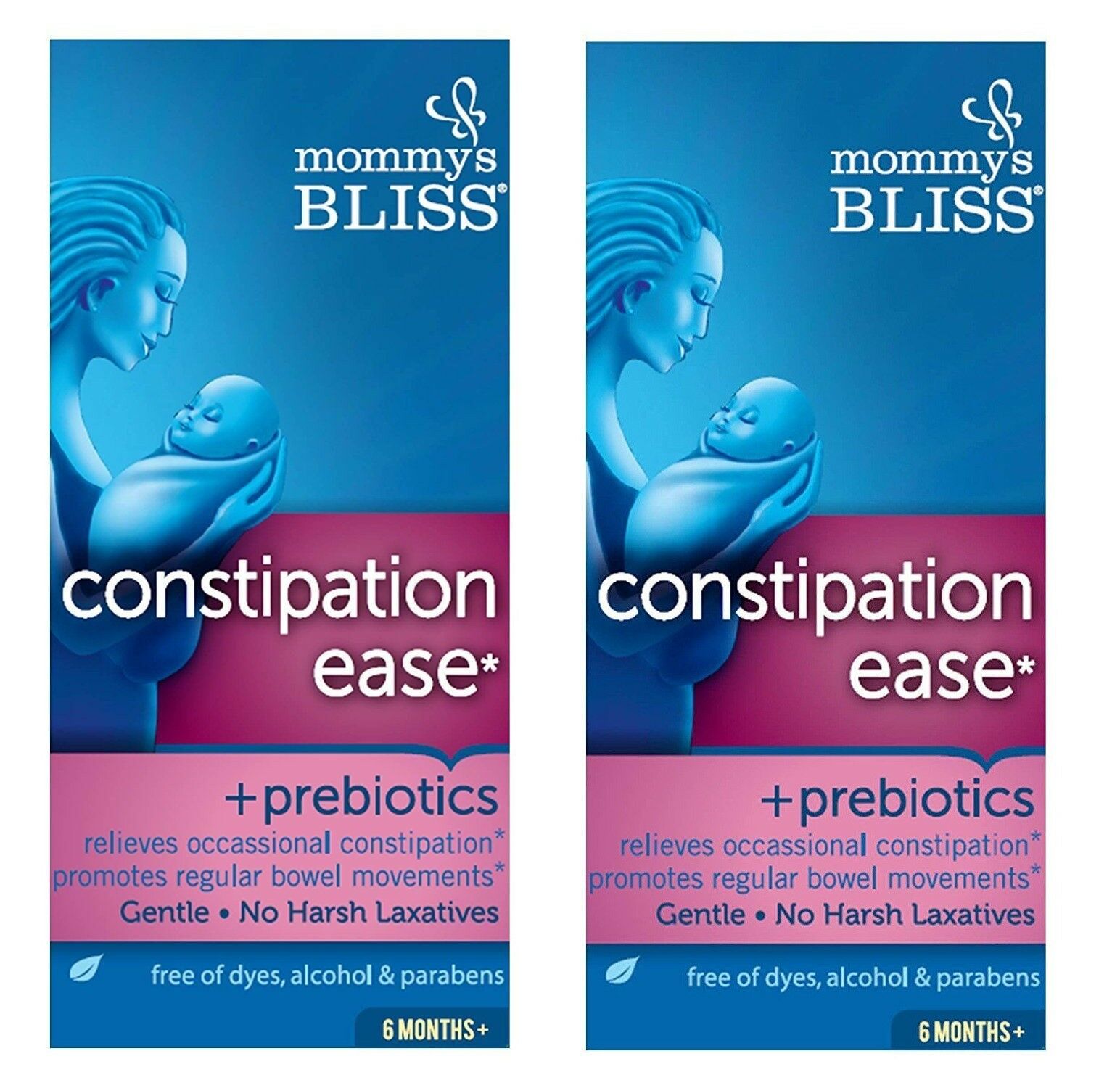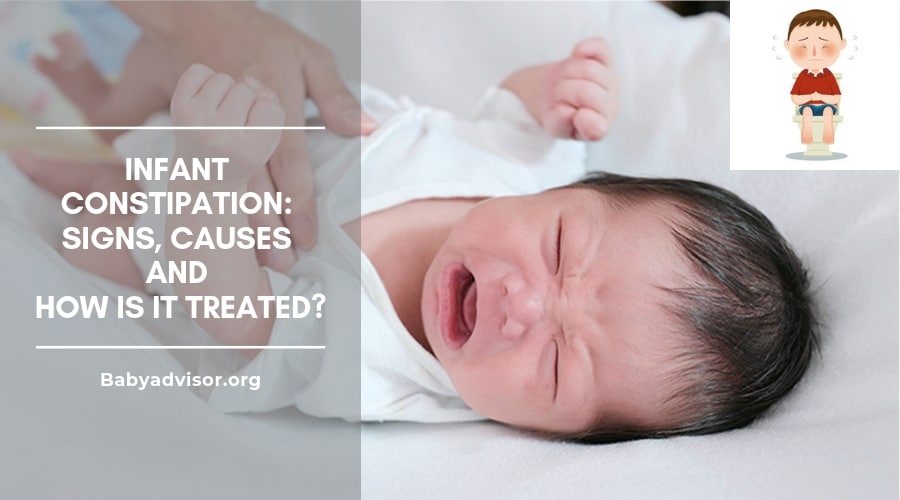
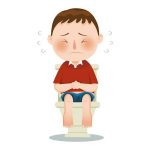
How Often Should a Baby Poop
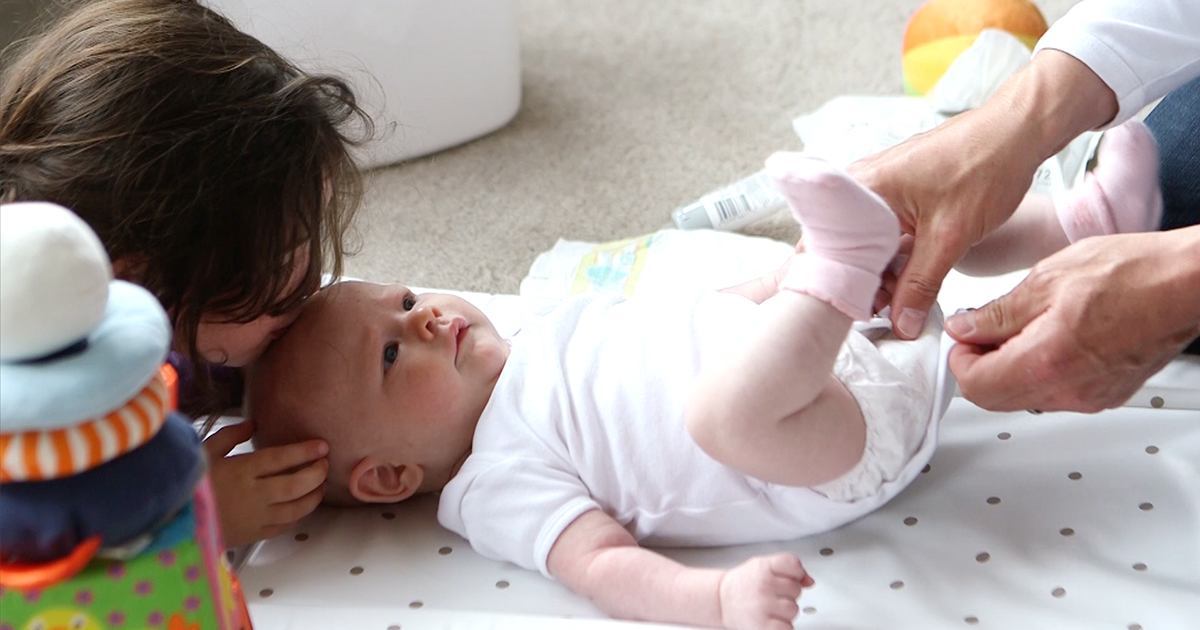
To make it even more confusing, there is a wide range of what’s considered normal when it comes to the frequency of baby poops. Breastfed babies might poop more often or less often than formula fed babies. Also, the number of dirty diapers change throughout the first days and weeks of life.
At first, expect one or two poopy diapers during the first days of life. The very first bowel movements are called meconium, and they look like black, sticky tar. Meconium stains aren’t easy to get out of fabric.
Once your baby is a week old, the poop fun begins and starts to vary more. Babies might poop anywhere from five to ten times a day. Many breastfed babies poop with each day change, but it’s not abnormal for them not to do so as well.
As your baby gets older, dirty diapers start to taper off around one month. Their digestive system starts to mature, reducing the number of bowel movements while increasing how much they eat. Don’t be surprised when those bowel movements become much more substantial.
- A formula fed baby should have at least one bowel movement each day.
- Breastfed babies might have several bowel movements per day, but some breastfed babies only poop once per week – seriously.
Breastfed babies can go longer without having a bowel movement because there isn’t as much solid waste left over after a feeding.
When There is a Problem
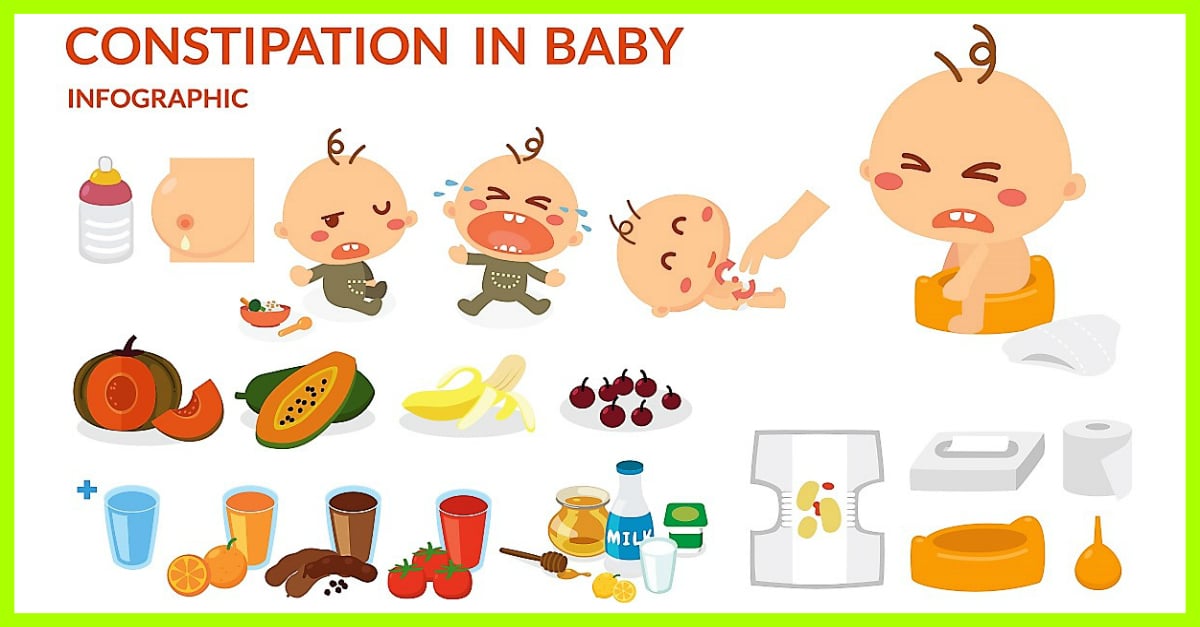
So, if the amount of poop that your baby should have varies so widely, how do you know something is wrong?
Parents need to watch their baby’s diapers to gather a baseline of what to expect. For example, your breastfed baby might poop twice a day every day, while your friend’s baby might poop every other day. That would concern you but not your friend. All babies are different.
- Black stools after meconium are done
- Maroon or bloody stools
- White or grey stools
- An unexpected increase in the number of bowel movements
- Explosive diarrhea
- Mucus or water in stools
What Causes Baby Constipation?
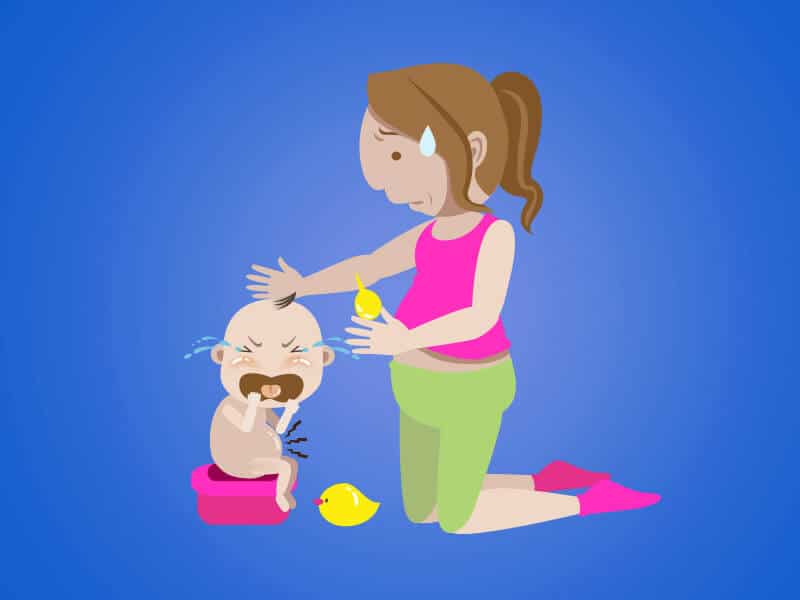
So, what causes an infant to become constipated? Several factors can cause constipation, so let’s take a look to see if one of these causes fit your baby.
Diet Issues
Most often, a diet change is the problem that causes baby constipation. Changing from breast milk to formula, transitioning to cow’s milk, or introducing solid foods are all possibilities. An allergy or intolerance to cow’s milk protein is one of the most significant factors of baby constipation.
Sickness
If your baby isn’t feeling well, he might not eat or drink as much as usual. That can cause an imbalance in his digestive system, resulting in constipation. Dehydration is also a leading cause of constipation, leaving behind dry and hard stools.
Medication
Iron supplements or narcotic pain medication can lead to baby constipation. Your baby’s medicine might be to blame, or your medication if you’re a breastfeeding mother.
Prematurity
Due to their immature digestive system, premature babies often have more trouble with infant constipation than full-term babies. Food moves slower through their GI tract, improperly processing, which can cause hard, dried stools.
Family History
Some families have specific medical issues that can increase the likelihood that your baby might have constipation issues. Examples are cystic fibrosis, chronic constipation, celiac disease, and Hirschsprung’s disease.
Ways to Relieve Baby Constipation

1Increase Fluids
Increase Fluids
If your baby is breastfed, offer more breast milk. Depending on your child’s age, you also may be able to introduce water. Water is safe for babies over six months old. Speak to your doctor if your baby is under six months old to determine its safety. Adding an extra two to four ounces of fluids can help flush out the bowels properly.
2Try Fruit Juice
Try Fruit Juice
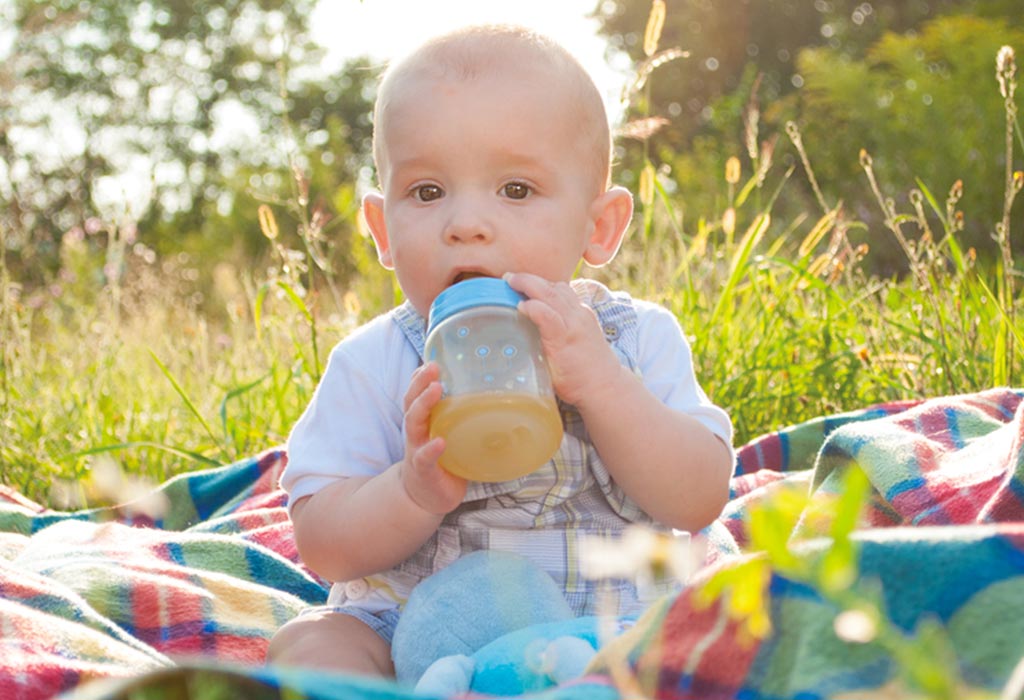
Prune juice has a laxative effect, but you can also use pear or apple juice to relieve minor constipation. Juice can be given to babies six months old or under the care of a pediatrician. The most you want to give is one to two ounces. Juice is acidic, and it can cause your baby to have a bad rash.
3Feed Fresh Fruit
Feed Fresh Fruit
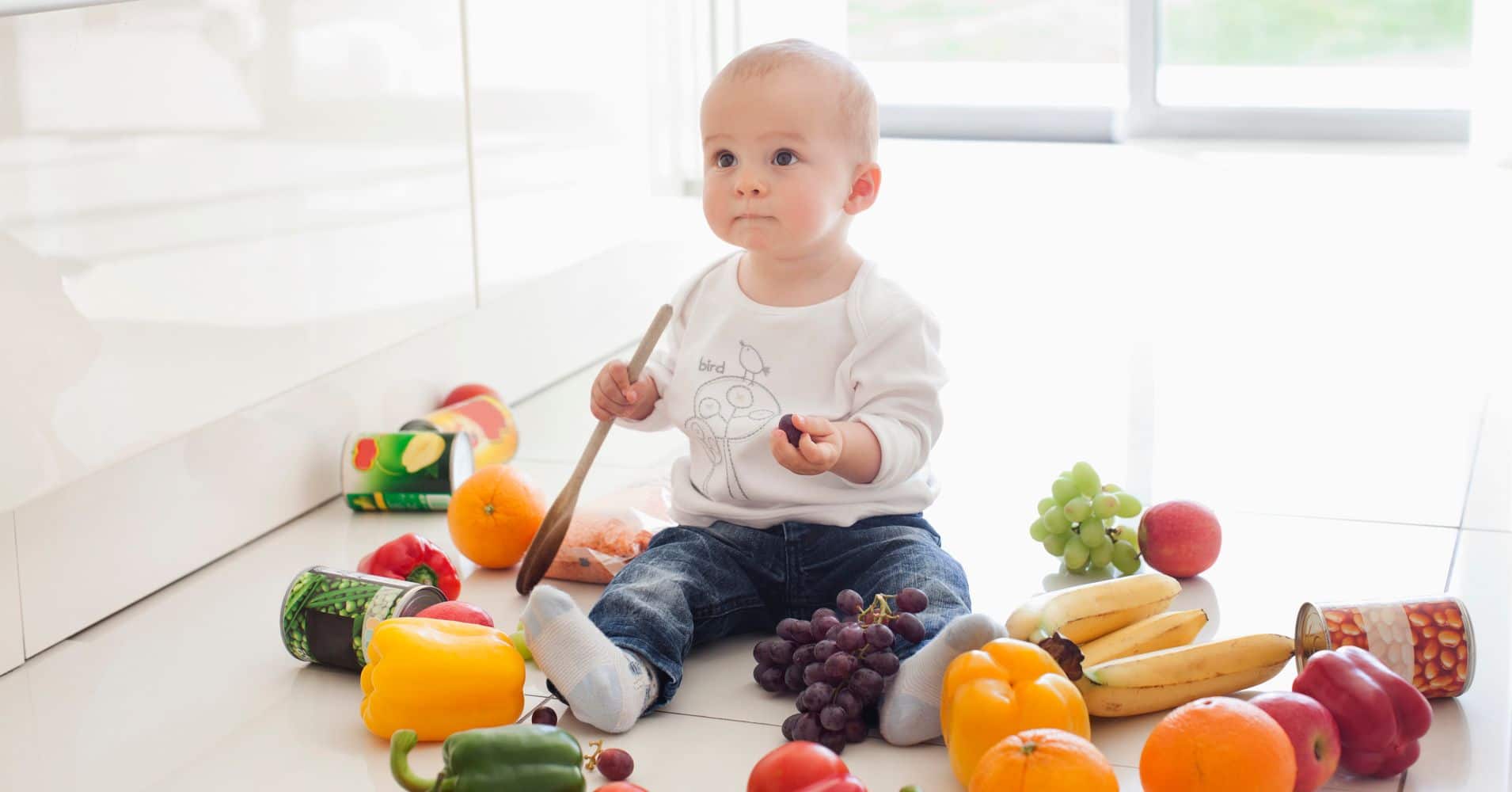
For solid eating infants, you can try introducing more fresh fruit to help avoid constipation in babies. Apricots, apples, pears, prunes, peaches, and plums all help to decrease constipation. Try to avoid bananas and rice cereal when your baby is already constipated because they’re known for having a binding effect on bowel movements.
4Bicycle His Legs
Bicycle His Legs

Grab your baby’s legs and start moving! Move his legs in a movement that looks like he is pedaling a bicycle, up and down with your baby on his back in front of you. His legs should be going in a circular, up and down, motion.
Why does bicycling help to relieve infant constipation? This trick works because it releases abdominal pressure and gets things moving in the right direction.
5Take a Rectal Temperature
Take a Rectal Temperature
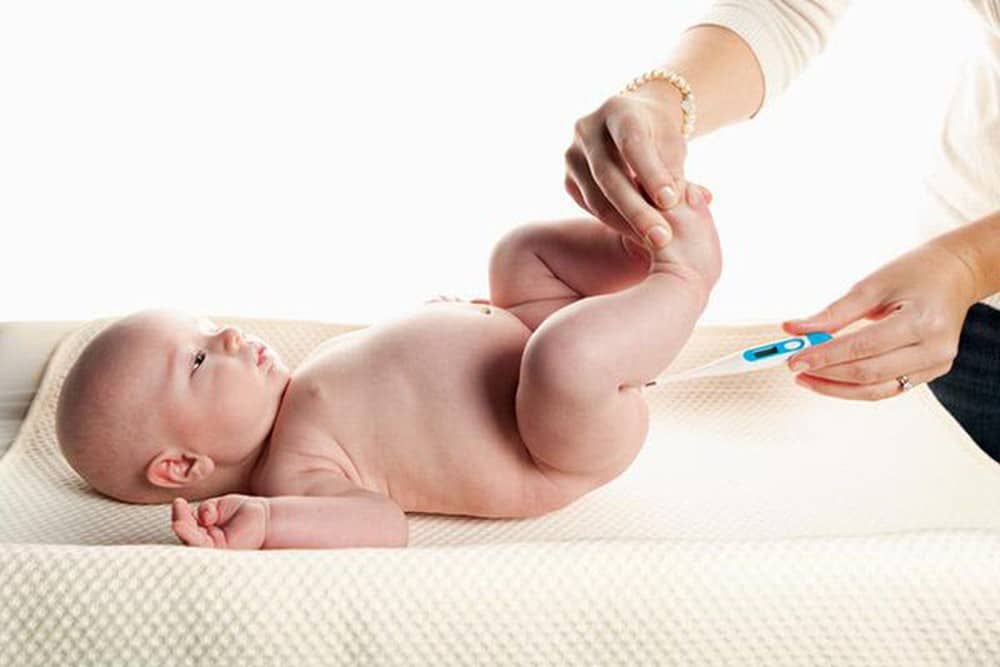
Another easy remedy is to take your baby’s rectal temperature. Rectal stimulation helps your baby’s bowels start to move. Put petroleum jelly on the tip of a rectal thermometer and insert into your baby’s bottom. Very gently wiggle just the tip of the thermometer and remove. This stimulation usually leads to bowel movement.
6Warm Baths
Warm Baths

Warm baths feel good anytime that you don’t feel good, and it’s the same for babies. Taking a warm bath helps your baby relax, hopefully letting go of that backed up poop. When you remove your baby from the bathtub, that’s the perfect time to try some belly massages like mentioned below.
7Belly Massages
Belly Massages

Constipation causes your baby’s belly to hurt, and a belly massage can be just the right thing. Put your baby on his back and place your hand on his belly button. Use a clockwise motion to massage your baby’s belly in circle motions, getting larger with time. Watch his reactions to see if its too much pressure or if he’s crying.
8Mommy’s Bliss Constipation Ease
Mommy’s Bliss Constipation Ease
For babies who are older than six months old, try Mommy’s Bliss Constipation Ease. It’s a supplement designed to help relieve symptoms connected to infant constipation. Constipation Ease contains gentle ingredients such as prune juice, organic fennel, and organic dandelion to soften stools.
Check Pricing and Availability
9Try a Glycerin Suppository
Try a Glycerin Suppository
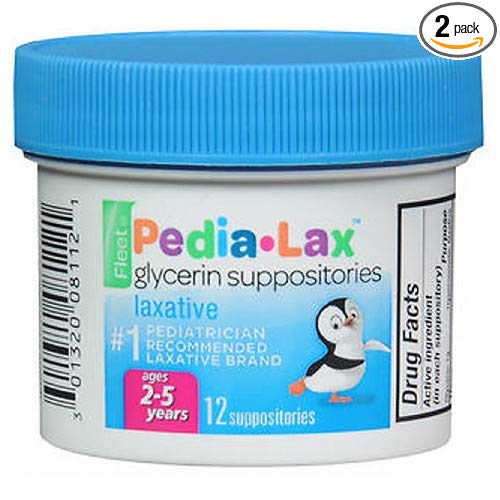
Check Pricing and Availability
10Talk to Your Pediatrician about Changing Formulas
Talk to Your Pediatrician about Changing Formulas

If you notice that this is becoming a common issue, it might indicate that your child is taking the wrong formula. Every baby reacts differently to the ingredients in the formula, so trying a new brand can help you find a brand your baby tolerates the best. He might need a low-lactose choice. Speak to your pediatrician about your concerns and see what formula she recommends that you try.
Don’t Hesitate to Call Your Pediatrician
If you are concerned at any time, call your child’s pediatrician. Constipation usually clears up on its own or with a natural treatment. Chronic constipation may have an underlying issue, so don’t hesitate to call if you’re concerned about frequent constipation or if you can’t get your child to have a bowel movement and his pain is increasing.

